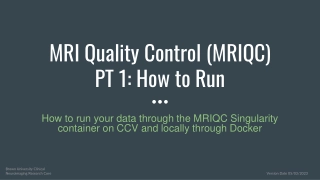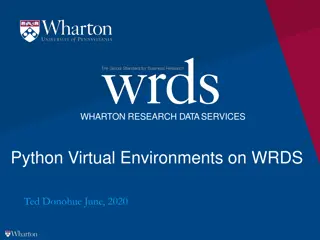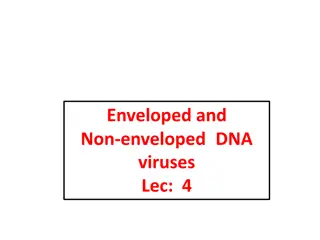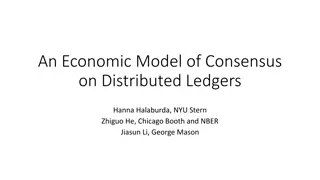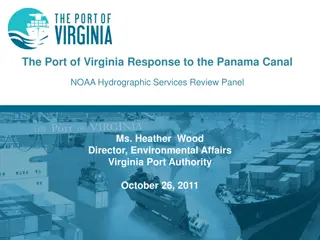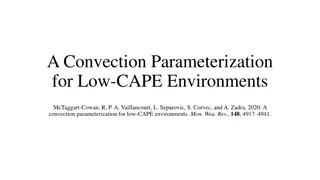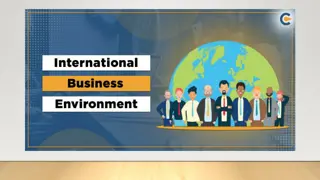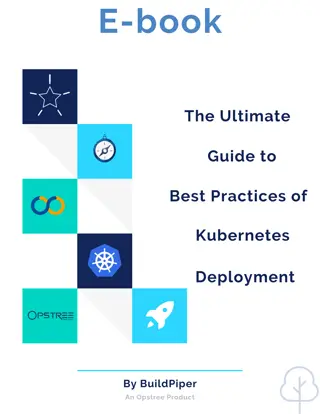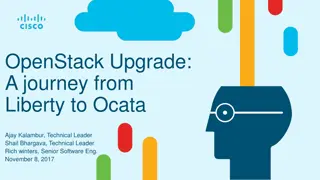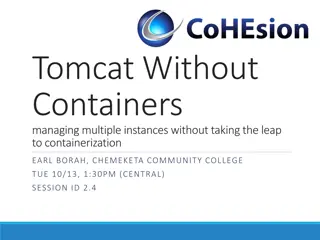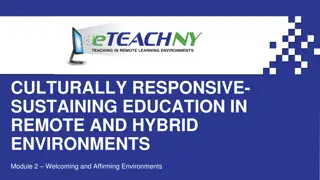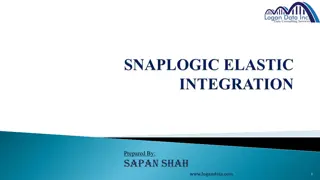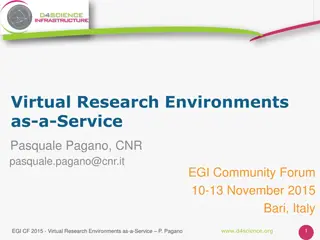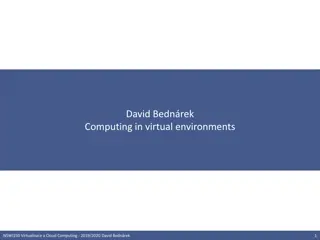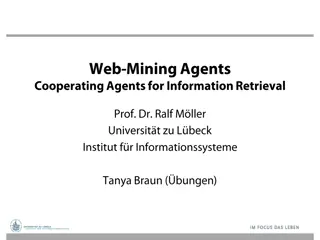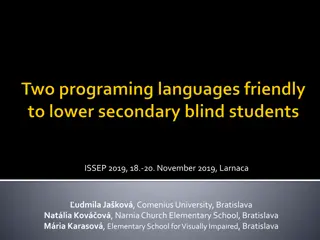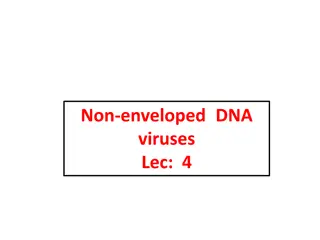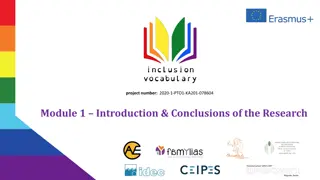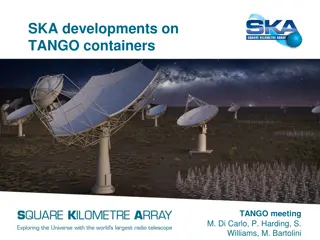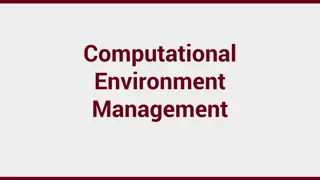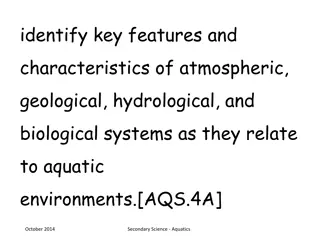MRIQC: Enhancing MRI Data Quality Assessment
MRIQC is a software tool for automatic quality assessment of MRI data, allowing comparisons across subjects and sites. It generates reports on Image Quality Metrics, identifying and standardizing quality procedures. Improves QA by overcoming visual assessment limitations, reducing time consumption,
0 views • 28 slides
Dominate Your Career Ace L3M1 Procurement & Supply Environments Exam with Confidence
Achieve success in the L3M1 Procurement and Supply Environments exam with confidence. Prepare effectively with comprehensive study materials and practice tests. Gain expertise in procurement processes, supply chain management, and industry environments. Validate your skills and enhance your career p
1 views • 4 slides
Environments,Tuples,& Dictionaries
Explore the concepts of environments, tuples, and dictionaries in Python through visual diagrams and explanations. Learn about how Python interprets programs, assignments, functions, and function calls within different frames and environments. Discover the rules for name lookup in user-defined funct
2 views • 27 slides
Understanding the Economics of Containerized Cargo Pricing
Containerized cargo, the lifeblood of global trade, has revolutionized the way goods are transported across the world. At the heart of this logistical marvel lies a complex web of economic factors that determine the pricing of containerized cargo services. Revenue technology services play a crucial
1 views • 5 slides
Establishing Safety Standards in Non-Movement Areas at Smith Reynolds Airport
This guide outlines the purpose, definitions, rules, and safety measures for operating vehicles in non-movement areas at Smith Reynolds Airport. It emphasizes standardized ground movement practices to ensure the safety of airport patrons, reduce the risk of injury, and maintain a high level of safet
1 views • 12 slides
Managing Python Virtual Environments on WRDS
Understanding and creating virtual environments on WHARTON RESEARCH DATA SERVICES (WRDS) allows users to isolate Python packages for different projects, ensuring compatibility and preventing conflicts. This guide covers creating, activating, deactivating, and using pip to install Python packages wit
0 views • 13 slides
Understanding Enveloped and Non-enveloped DNA Viruses
Non-enveloped DNA viruses, surrounded by a protein capsid, are resistant to sterilization and thrive in acidic environments. Adenoviruses, a common non-enveloped type, spread through close contact and contaminated objects. Additionally, Papilloma and Polyoma viruses, causing persistent infections an
0 views • 23 slides
Understanding Non-Aqueous Solvents: Types and Classification
Inorganic non-aqueous solvents play a crucial role in chemical research and industry. This article by Dr. Princy K.G. delves into the classification of solvents based on protonicity, polarity, and aqueous vs. non-aqueous nature. It explores the types of non-aqueous solvents, such as protonic and non
1 views • 29 slides
Understanding Media Ecology: Impact of Communication Technology
Media ecology is a theoretical concept analyzing the influence of media and communication technology on human culture. Neil Postman, a prominent figure in the field, delves into how communication media affect human perception, understanding, and values. This study views media as environments shaping
4 views • 23 slides
Understanding 1H NMR and Proton Environments in Molecules
Exploring the concept of proton environments in molecules using 1H NMR spectroscopy. The presence of different types of hydrogens in a molecule is highlighted, showcasing how protons exist in varied magnetic environments leading to distinct signals in the 1H NMR spectrum. Electron shielding and its
0 views • 36 slides
Understanding Non-Firm Quantities in Electricity Markets
Non-Firm Quantities in electricity markets involve units with non-firm access not being compensated for their non-firm capacity not getting accommodated on the system. The concept of Firm Access Quantity plays a key role in determining compensation levels for units, with differences in implementatio
0 views • 6 slides
Understanding Non-Compete Agreements: Enforceability and Requirements
Non-compete agreements are commonly used in the United States to protect businesses from competition by former employees. To be enforceable, these agreements must meet certain requirements, including independent consideration, protection of legitimate business interests, and reasonableness in scope,
0 views • 26 slides
Comparison of Trigger-based vs. Non-Trigger-based Sensing Measurement in IEEE 802.11
The document discusses the differences between Trigger-based (TB) and Non-Trigger-based (Non-TB) sensing measurement instances in IEEE 802.11 standards, focusing on who initiates the sensing measurement. TB sensing is initiated by the AP, while Non-TB sensing is initiated by a non-AP STA, enabling o
6 views • 13 slides
Economic Models of Consensus on Distributed Ledgers in Blockchain Technology
This study delves into Byzantine Fault Tolerance (BFT) protocols in the realm of distributed ledgers, exploring the complexities of achieving consensus in trusted adversarial environments. The research examines the classic problem in computer science where distributed nodes communicate to reach agre
0 views • 34 slides
Athena Software and Computing Updates - July 22, 2021
Updates on Athena Software and Computing WG meeting held on July 22, 2021. Full simulation benchmarks setup, environment variable settings, reconstruction progress, and instructions on pulling necessary codes in the containerized environment are discussed. Advice on frequent code pulls highlighted f
0 views • 5 slides
Insights into U.S. Port Performance and Trade Trends
This compilation presents a snapshot of the Port of Virginia's response to the Panama Canal and explores forecasted global demand for containerized trade. The data further delves into historic port performance, U.S. port rankings, top customers, and trading partners in 2010, shedding light on the Ea
0 views • 36 slides
Convection Parameterization for Low-CAPE Environments
Many global Numerical Weather Prediction systems face challenges predicting convective activity in low-CAPE environments. This study introduces a convection parameterization scheme based on moisture convergence to better represent convective effects. The scheme focuses on the triggering function, up
1 views • 38 slides
Contemporary Challenges in Nuclear Disarmament and Non-Proliferation Regime
The international regime for nuclear disarmament and non-proliferation faces challenges from states within and outside the regime, as well as non-state actors. Various approaches are being utilized to address these challenges, including strengthening multilateral institutions, non-treaty-based multi
0 views • 12 slides
Understanding Factors of Change in Business Environments
Factors of change in business environments encompass socio-cultural, economic, technological, political, and legal elements. These factors influence how businesses operate and make decisions in a dynamic world. The social environment, cultural environment, and economic environment play crucial roles
0 views • 8 slides
Enhancing Inclusivity in Mathematics Learning Environments
Mindset Scholars Network's Inclusive Mathematics Environments Fellowship aims to create inclusive math spaces for marginalized students. Insights from research emphasize the importance of fostering belonging and identity development in education, especially in the face of COVID-19 disruptions. By ch
0 views • 34 slides
Improving Attainment and Progress of Disadvantaged Pupils in Sheffield
Attainment and progress of disadvantaged pupils in Sheffield show an improving trend across key stages, although the gaps between disadvantaged and non-disadvantaged students are not closing fast enough. Data suggests that disadvantaged pupils with low prior attainment are making better progress in
0 views • 29 slides
Understanding Non-Profit Accounting Essentials
Learn the basics of non-profit accounting, including what defines a non-profit organization, common types of non-profits, governance structures, and legal responsibilities. Discover key insights on IRS and state requirements for non-profits in this informative presentation by Jessica Sayles, CPA fro
0 views • 55 slides
Further Discussion on Non-primary Channel Access in IEEE 802.11
This contribution delves into the utilization of non-primary channels for access in IEEE 802.11 networks, focusing on enhancing frequency reuse, adhering to ETSI standards, evaluating CCA capability types, and analyzing non-ideal deployment scenarios. It discusses the complexity and benefits of non-
0 views • 26 slides
ultimate guide to kubernetes deployment
Kubernetes is an open-source platform for scheduling and automating the deployment,management and scaling of containerized applications. Also known as \u201ck8s\u201d or \u201ckube\u201d \u2014 this container orchestration platform enables cost-effec
0 views • 28 slides
Understanding OpenStack Upgrades: A Comprehensive Overview
Delve into the world of OpenStack upgrades as we explore the reasons for upgrading, the process involved, and the key areas to focus on. Discover the importance of minimizing downtime, improving stability, and bringing in new features. Gain insights into upgrading packages, configuration files, data
0 views • 37 slides
Managing Multiple Tomcat Instances Without Containerization
Explore strategies to manage multiple Tomcat instances effectively without transitioning to containerization, discussing deployment methods, script samples, and practical tips for optimizing Tomcat setup in a non-containerized environment.
0 views • 21 slides
Creating Welcoming Environments in Remote and Hybrid Education
This module explores the importance of creating welcoming and affirming environments in remote and hybrid educational settings. Through immersive scenarios, it prompts reflection on the impact of initial interactions on individuals entering a new space. Emphasis is placed on fostering a sense of bel
0 views • 34 slides
Discover SnapLogic: The Elastic Integration Platform
SnapLogic is a powerful cloud-based integration platform designed for seamless connectivity between various applications and data sources. With its HTML5-based Designer, Manager, and Dashboard, SnapLogic offers a user-friendly and efficient solution for data integration across different platforms. I
0 views • 15 slides
Non-Negative Tensor Factorization with RESCAL
This article discusses non-negative tensor factorization with RESCAL, covering topics such as Non-Negative Matrix Factorization, Multiplicative Updates, RESCAL for Relational Learning, and Non-Negative Constraint for RESCAL. It explores how factorizing matrices/tensors into non-negative factors can
0 views • 11 slides
Virtual Research Environments as-a-Service: Advancing Collaborative Research Efforts
Explore how Virtual Research Environments as-a-Service, exemplified by D4Science, enhance research collaboration by providing operational ecosystems, genealogy testbeds, and e-Infrastructures. These environments cater to diverse user needs, from data management to cost reduction, offering capabiliti
0 views • 27 slides
Exploring Virtual Environments in Computing: An Overview
Virtual environments in computing encompass a range of technologies, from virtual memory to virtual machines and virtual execution environments. These environments allow software to run in a different setting than originally designed, minimizing complexities. Key components include virtual memory, m
0 views • 26 slides
Exploring Chess Strategies and Environments in AI
Dive into the world of chess AI with a focus on different strategies and environments such as playing with a clock, deterministic scenarios, and more. Explore the nuances of fully observable, episodic, and discrete environments in AI chess applications.
0 views • 38 slides
Enhancing Programming Skills for Blind Students with Alan and Torino Environments
In this research study, blind students' misconceptions in solving tasks with command sequences and loops are observed. The study explores the use of Alan and Torino programming environments for blind students. The research aims to understand the advantages and disadvantages of programming in these e
0 views • 16 slides
Overview of Non-Enveloped DNA Viruses and Their Impact on Human Health
Non-enveloped DNA viruses are surrounded by a protein coat called a capsid, making them difficult to sterilize and highly resilient in various environments. This article explores the characteristics and impact of non-enveloped DNA viruses such as Adenoviruses, Papilloma and Polyoma Viruses, and Huma
0 views • 16 slides
Creating Inclusive Environments in Schools for LGBTQI+ Community
Creating a new Inclusion Vocabulary to promote acceptance of sexual orientation among teachers and students in high schools. Financed by the Erasmus+ Programme, this project aims to provide digital resources, training, and sensitivity for educators to foster inclusive environments. The project focus
0 views • 21 slides
Developing Standardized Tango Environment with Docker for SKA Telescope Project
SKA project required a standardized Tango environment for development, testing, and continuous integration resulting in reference Docker images for Tango v9.3.3. Developed on Debian stable, these images include dependencies and follow best practices. The project, known as ska-docker, provides core i
0 views • 13 slides
Managing Software Environments for Reproducibility
Efficient management of computational environments is crucial to ensure software reproducibility. Learn how to record software environments, use tools like Miniconda and pip for package installation, and manage R packages for reproducible research.
0 views • 17 slides
Exploring Avatar Path Clustering in Networked Virtual Environments
Explore the concept of Avatar Path Clustering in Networked Virtual Environments where users with similar behaviors lead to comparable avatar paths. This study aims to group similar paths and identify representative paths, essential in analyzing user interactions in virtual worlds. Discover related w
0 views • 31 slides
Understanding Aquatic Environments: Systems and Interactions
Explore the key features and characteristics of atmospheric, geological, hydrological, and biological systems in relation to aquatic environments. Apply systems thinking to analyze positive and negative feedback cycles. Utilize technology to collect and evaluate global environmental data. Evaluate d
0 views • 28 slides
Recent Research on Food Environments in New York City
Exploring the impact of food environments on BMI among respondents to the NYC Community Health Survey, this research delves into neighborhood effects on diet, physical activity, and BMI. Analyses adjust for various factors, and the association between BMI and BMI-unhealthy outlets is examined in rel
0 views • 7 slides
